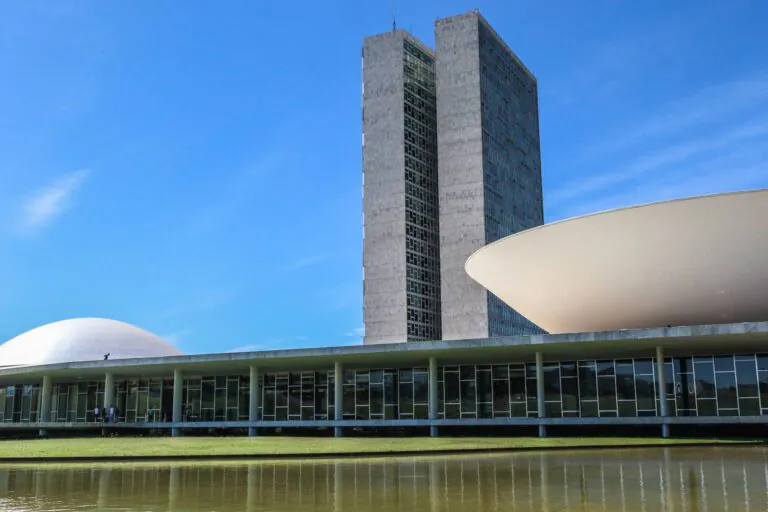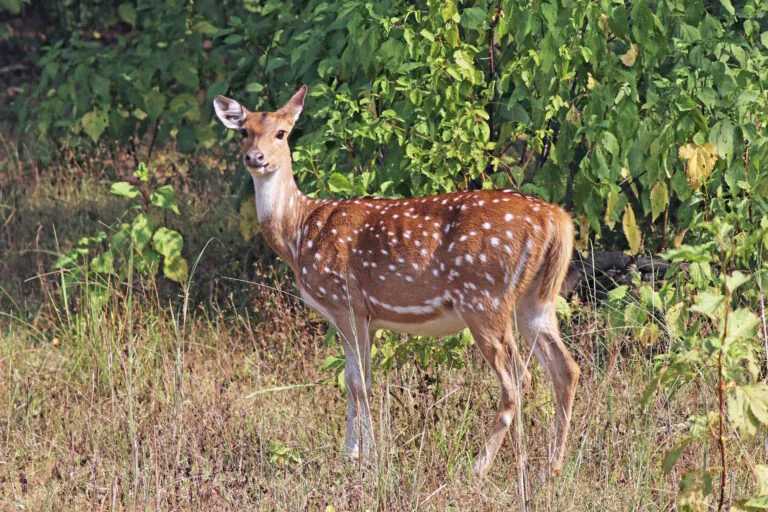Índice
ToggleThe Brazilian government will not renew an agreement signed five years ago with the Association for the Conservation of Threatened Parrots (ACTP). This decision should not halt the reintroduction of the Spix’s macaw in the Caatinga, but it may have other socio-environmental impacts.
“This decision was made collectively with the Ministry of the Environment and Climate Change (MMA) and the Brazilian Institute of Environment and Renewable Natural Resources (Ibama),” says Mauro Pires, president of ICMBio (the Chico Mendes Institute for Biodiversity Conservation).
The partnership, established on June 7, 2019, enabled the reintroduction of birds transferred from Germany into protected areas in the Caatinga, where the species (Cyanopsitta spixii) had been extinct since the 2000s due to trafficking and environmental destruction. Some of the 20 birds released in 2022 fell prey to predators, and there have been no releases in subsequent years.
“The reintroduction of the bird in Brazil might face some delays, but the animals in other breeding centers are sufficient to maintain the species’ conservation program,” says Marcelo Marcelino de Oliveira, director of Research, Evaluation, and Monitoring of Biodiversity at ICMBio.
The 315 Spix’s macaws recognized by the brazilian agency are in the private zoos Pairi Daiza (22), in Belgium, Greens Zoological Rescue and Rehabilitation Centre (26), in India, São Paulo Zoo (27), in Brazil — conceded to a private initiative in 2021 — in a breeding center maintained by the ACTP and ICMBio in Curaçá, in the Brazilian state of Bahia (40), and in the ACTP’s facility (200) in Rüdersdorf, 30 km from the German capital of Berlin.
“The ACTP houses a current population of 267 Spix’s macaws with an annual offspring of 60 birds, capable of sustaining a growing population and providing 20 birds annually for release in Brazil,” reveals Martin Guth, president of the German entity.

Dr. Luís Fábio Silveira, curator of Ornithological Collections at the Museum of Zoology of the University of São Paulo (USP), believes that delays in the release schedule can be compensated over time.
“It’s very important to note that [reintroduced] birds have already bred in the wild, indicating a medium-term success for the Spix’s macaw reintroduction,” highlights Silveira, also president of the conservationist Lymington Foundation. Wild chicks were born last October.
Martin Guth (ACTP) commented that ending the agreement with the Brazilian government will prompt the breeder to promote new actions for the endangered bird. “Rest assured, our dedication to the welfare and conservation of the Spix’s macaw remains unwavering,” he affirms.
The termination of the formal partnership does not preclude other forms of support for the bird’s conservation. “Nothing prevents the ACTP from continuing its work of breeding and transferring birds for reintroduction, which is fully in the interest of the Brazilian government,” adds Marcelo Marcelino de Oliveira from ICMBio.

Unusual Circumstances
The transfer of 4 Lear’s macaws (Anodorhynchus leari) and 26 Spix’s macaws from the ACTP to the Indian Greens Zoological Rescue and Rehabilitation Centre, in February last year, was one of the triggers for ending the contract.
“ICMBio’s decision is correct, as there are actions that deviate from the previously agreed terms with the Brazilian government, and if not properly addressed, could threaten the species’ conservation program,” says Dr. Luís Fábio Silveira from USP.
“Until now, the ACTP has not satisfactorily explained the relocation of the 30 birds to the Indian institution,” adds Marcelo Marcelino de Oliveira, director of Research, Evaluation, and Monitoring of Biodiversity at ICMBio. The organization stated at the time that it was not informed in advance about the transfer.
The Convention on International Trade in Endangered Species of Wild Fauna and Flora (CITES) regulates trade and transfers of species under risk of extinction. Brazil has followed its rules since 1975.
A note from ICMBio’s National Center for Research and Conservation of Wild Birds (Cemave) to ((o))eco emphasizes that CITES requires that all international movements of Spix’s macaws be licensed by the Convention authorities in the origin and destination countries that have joined the agreement.
Martin Guth, of the ACTP, reiterates that the relocation of birds to India was informed and recognized by ICMBio at the end of 2022, and that it was necessary due to overcrowding at the German breeding center, which would require “investment in personnel and an expansion of the facilities” to better accommodate the birds.
“This will allow us to manage the growth of the captive macaw population and continue to provide birds annually for release in Brazil. The relocation of the birds is an administrative and operational activity of the ACTP, and the ownership and management of the birds remain under our jurisdiction,” he says.

Cemave notes that all Spix’s macaws in breeding centers descend from individuals taken from Brazil “even if born in captivity”, and that these institutions should be partners in government programs to combine efforts for the species’ conservation.
“It is not in the public interest for specimens of endangered species to be in captivity without participating in ex situ management programs when necessary for the species’ conservation. Environmental norms that serve public interest supersede private rights norms in Brazil and abroad,” it explains. But there are other sources of pressure.
Documents presented by the ACTP to CITES indicate that the transfer of birds to India was not commercial, but would revert resources to their conservation. “Section 5.4 of the agreement with ICMBio allows the ACTP to seek partners and financial support for the Spix’s macaw reintroduction project,” it states.
A proposal to allow the global trade of Spix’s macaws and Lear’s macaws was rejected at a CITES meeting last November in Switzerland because other countries supported the Brazilian government’s position that this would cause “potential, hard to reverse damage to the conservation of these species.”

“The Brazilian state declared that it is firmly opposed to the trade of Spix’s macaws and Lear’s macaws inside or outside conservation programs, even if the trade is argued to be necessary to fund conservation actions for these programs,” Cemave highlights.
Paola Reidl, co-lead of Data, Research and Enforcement Support at Traffic, a global NGO that fights wildlife trafficking and regulates wildlife trade, says there are currently no registered Spix’s macaw traders in Germany under CITES.
“As long as a facility is not registered, it cannot export specimens for commercial purposes, like Spix’s macaws outside the European Union. If a breeding center exports specimens proving they will be used for non-commercial purposes, this registration will not be necessary,” she explains.
Effects in the Caatinga
The ACTP’s partner organization in Brazil, BlueSky, believes that the end of the agreement with ICMBio might threaten the bird’s reintroduction and harm the entity’s efforts to restore regions where the Spix’s macaw lives and generate alternative income for local populations. Other public and private organizations operate in the Spix’s macaw occurrence area.
“BlueSky does not depend on the ACTP’s resources. The restoration project is funded by investors partnering with the ACTP. We have a contract to provide administrative support to the ACTP Center, which [aids] in the Spix’s macaw reintroduction,” says company president Ugo Vercillo.
BlueSky states it began restoring natural vegetation in 2023 — with 307 hectares — supporting 28 families and directly employing 102 people. Its expectation is to expand the project to up to 24,000 hectares, benefiting over 400 families in a very poor region.
Articles published by Vercillo and other researchers indicate that the species’ long-term conservation depends on at least 15,000 hectares of preserved Caatinga and a minimum wild population of 700 birds. “We are far from this goal,” he says.
The interruption of the agreement could even lead to the extinction of reintroduced animals, as larger free-living groups are more alert to predators. “It would be another tragedy for the species and the organizations involved,” emphasizes Vercillo, a federal employee on leave since November 2021.
Founded in 2022 in Curaçá, in the state of Bahia, the company seeks to obtain carbon credits by restoring forests on partner farms. Landowners are compensated for the area ceded for replanting and supported in order to adopt productive practices that are less harmful to natural environments, such as keeping goats in enclosures to prevent them from devouring natural vegetation.

In a note to ((o))eco, BlueSky advocates for private and public organizations to act for the “common interest,” which is the reintroduction of the Spix’s macaw and the improvement of local communities’ quality of life, “regardless of whether or not there is a technical cooperation agreement between the parties.”
For the entity, if the Spix’s macaw can return to the wild without the joint efforts of the ACTP and ICMBio, the agreement does not need to be renewed. “But the public sector cannot manage environmental preservation alone. The state should focus its resources on its exclusive actions, on demands which remain unassisted, and support entities working for the common good,” it emphasizes.
The Military Police Colonel Homero Cerqueira, former president of ICMBio when the agreement with the ACTP was signed in 2019, recalls that the agreement with the German entity had been in the works since 2009, and was aligned, until its signing by then-Environment Minister Ricardo Salles, with other federal agencies, the federal parliament, and the Bahia government.
“It was a unique opportunity to recover a Brazilian species just before the world shut down due to the COVID-19 pandemic. A greater evil would have been not bringing the Spix’s macaws to the country,” he highlights. The first Spix’s macaws from the ACTP arrived in Brazil in March 2020, shortly before the United Nations declared the pandemic.
The former federal chief believes more community policies for job creation and income generation as well as strong oversight and investigation are needed to prevent the species from being trafficked again, and to create conditions for repatriating the provenly Brazilian birds, maintained in breeding centers abroad.
“The Spix’s macaws in breeding centers in Europe and other regions descend from birds that left Brazil illegally [trafficked],” acknowledges Cerqueira. “They could return to Brazil legally. The government should make this effort,” he concludes.
As informações apresentadas neste post foram reproduzidas do Site O Eco e são de total responsabilidade do autor.
Ver post do Autor








